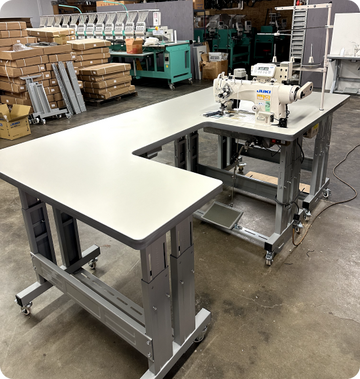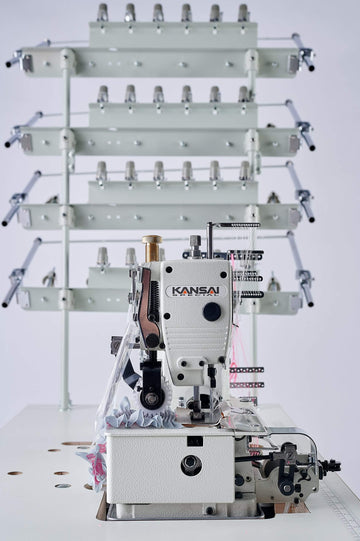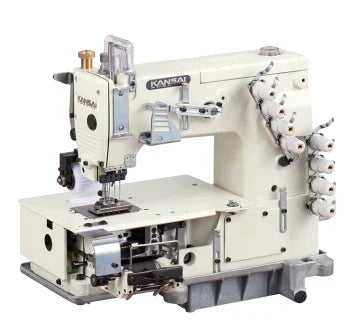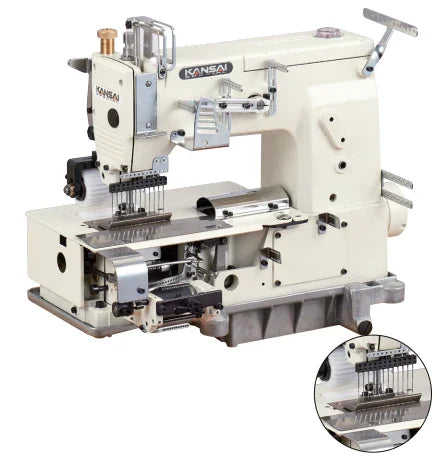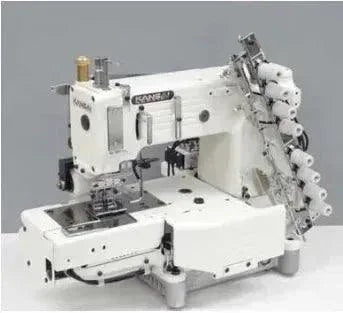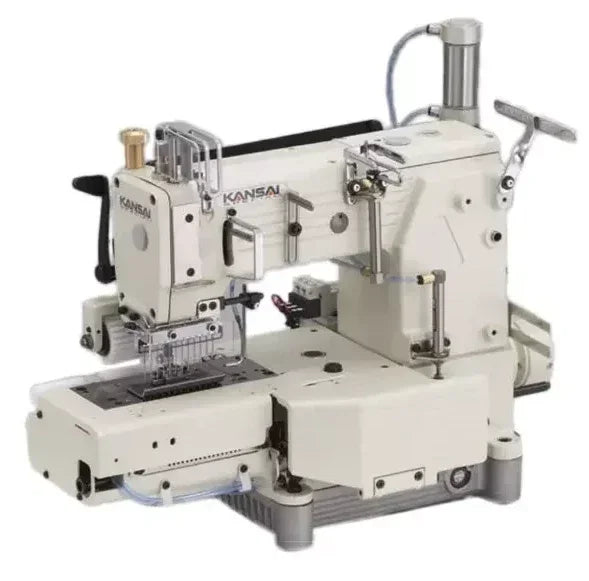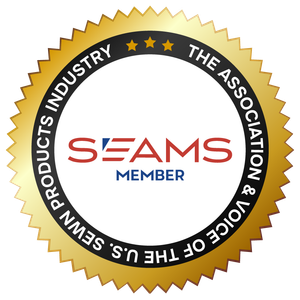Industrial Flat-bed Sewing Machines
Flat bed sewing machines are traditional sewing equipment, featuring a flat surface that resembles a table. The flat surface supports the material when making stitches. It delivers accuracy and precision without the need to make extra maneuvers. These machines are now used for home and industrial purposes.
40+ Years of Trust
Empowering top manufacturers since 1981
KANSAI Distributor
Best specialized machines & support
Lifetime Warranty
On all PRIZZI custom sewing tables
100% New Machines
Come with the standard manufacturer's warranties
International Women's Day Sale
Up to 50% OFF Sitewide + Promocode
days
days
hours
hrs
minutes
mins
seconds
secs
Industrial Flat-bed Sewing Machine DFB1404P
Brand:
KANSAI SPECIAL
Industrial Flat-bed Sewing Machine DFB1404PMD
Brand:
KANSAI SPECIAL
Industrial Flat-bed Sewing Machine DFB1412PQ
Brand:
KANSAI SPECIAL
Industrial Flat-bed Sewing Machine FBX1104P
Brand:
KANSAI SPECIAL
Industrial Flat-bed Sewing Machine FBX1104PR
Brand:
KANSAI SPECIAL
Industrial Flat-bed Sewing Machine FX4404P-UTC
Brand:
KANSAI SPECIAL
Industrial Flat-bed Sewing Machine FX4412P
Brand:
KANSAI SPECIAL
Industrial Flat-bed Sewing Machine FX4412P-UTC
Brand:
KANSAI SPECIAL
Industrial Flat-bed Sewing Machine FX4418P
Brand:
KANSAI SPECIAL
Industrial Flat-bed Sewing Machine FX4425PW (1/8)
Brand:
KANSAI SPECIAL
Industrial Flat-bed Sewing Machine MAC-200
Brand:
KANSAI SPECIAL
Industrial Flat-bed Sewing Machine NL-5801G
Brand:
KANSAI SPECIAL
Industrial Flat-bed Sewing Machine NL-5801G-UTAB
Brand:
KANSAI SPECIAL
Industrial Flat-bed Sewing Machine NW-2202GPC (1/4)
Brand:
KANSAI SPECIAL
Industrial Flat-bed Sewing Machine NW-8803GD-UTE-1/4 (6.4 mm)
Brand:
KANSAI SPECIAL
Industrial Flat-bed Sewing Machine NW-8803GD-UTE-7/32 (5.6 mm)
Brand:
KANSAI SPECIAL
Industrial Flat-bed Sewing Machine SPX-211
Brand:
KANSAI SPECIAL
What Is a Flat Bed Sewing Machine?
A flat bed sewing machine has a flat surface to move a smooth piece of fabric between the sewing foot and feed dogs. This design reminds a classic home sewing machine. Its wide, stable base makes it perfect for garment production and general sewing tasks. Unlike cylinder bed machines, this type of machine is not suited for tubular or curved items. Unlike post bed machines, it doesn’t manage hard-to-reach areas. A flat bed sewing machine is commonly used in apparel manufacturing, quilting, and other flat material applications.
Read moreWhat Is a Flat Bed Sewing Machine?
A flat bed sewing machine has a flat surface to move a smooth piece of fabric between the sewing foot and feed dogs. This design reminds a classic home sewing machine. Its wide, stable base makes it perfect for garment production and general sewing tasks. Unlike cylinder bed machines, this type of machine is not suited for tubular or curved items. Unlike post bed machines, it doesn’t manage hard-to-reach areas. A flat bed sewing machine is commonly used in apparel manufacturing, quilting, and other flat material applications.
Types of Flat Bed Sewing Machines
Sewing machine flat bed can suit different sewing needs, from home projects to industrial production.
Domestic flat bed machines have a user-friendly design, which makes them perfect for light to medium fabrics. Industrial machines have higher power and durability to handle heavy fabrics.
Mechanical flat bed machines have manual controls, which are easy to manage. Computerized machines offer a digital pattern selection, managed through automated features.
Walking foot machines feed both the top and bottom layers of fabric evenly, which is suitable for quilting and thick materials. Standard feed machines are better for lightweight, flat fabric sewing.
Each type offers certain benefits for completing different sewing tasks. This gives you the freedom to choose the most suitable equipment.
Applications and Use Cases
Flat bed sewing machines are common in garment manufacturing, upholstery, and other industries. They can handle lightweight and heavyweight materials, which automatically expands their possible applications. They also work at different speeds to deliver the desired productivity. Flat bed sewing machines produce clean, durable seams across multiple products. As a result, they deliver common fabric pieces, such as shirts, pants, curtains, and seat covers.
Advantages of Flat Bed Sewing Machines
The design of flat bed sewing machines determines their functionality. Here are the main advantages to consider:
-
Stitch quality and consistency, making them ideal for mass production;
-
Durability and efficiency, enabling smooth fabric handling and quality stitching;
-
Ease of use for flat materials, which makes them easy to operate.
These machines are considered to be a good choice for producing clean, strong seams on flat fabrics.
Considerations Before Buying
Are you looking for a domestic or industrial flat bed sewing machine? What are your actual needs? Here are the actual thoughts before making a purchase:
Workspace needs. Check how much space you have and what weight and noise you can handle with the new equipment.
Material compatibility. Ensure the machine can handle the type of fabrics you'll be sewing.
Maintenance and support. Ensure the manufacturer offers available parts and accessories, and has nearby service centers.
Don’t rush to a decision. Explore the available options to make the right choice.
Flat Bed Sewing Machine Price Range
The average flat bed sewing machine price depends on the manufacturer’s name, functionality, and productivity. Domestic machines cost from $200 to $1,000, while industrial ones cost between $2,000 and $10,000 due to more complex functionality. Compare the market prices before choosing the most suitable options for your exact needs.
Flat Bed Sewing Machines vs. Other Types
Flat bed sewing machines have a horizontal surface ideal for sewing flat pieces of fabric. They have become a common choice for commercial needs. Cylinder bed machines feature a narrow arm to be used for stitching curved or cylindrical items like sleeves and bags. Post bed machines have a large sewing area, required for reaching hard-to-reach places such as shoes and upholstery. Choose a flat bed machine when working with garments, quilts, or curtains. This way, you keep the sewing process fast and convenient at the same time.
Conclusion
Looking for a flat bed industrial sewing machine in South El Monte, Los Angeles, California? The variety of options on today’s market is beyond your expectations. There are many solid brands, offering good quality for a reasonable price. With a warranty, they guarantee a smooth user experience. Compare flat bed sewing machines from different manufacturers to make the right choice. Whatever your needs are, you will find the right machine for your needs.
Read lessFAQ
What is a flat bed sewing machine?
A flat bed sewing machine is the most common type of sewing machine, designed with a flat, horizontal base that resembles a traditional table surface. The needle and feed mechanism are positioned on top of this flat platform, allowing fabric to move smoothly across it while being stitched. This design is ideal for sewing flat pieces of fabric together, such as in garment making, quilting, or general tailoring. Flat bed machines are best suited for standard sewing tasks rather than cylindrical or hard-to-reach areas like sleeves or cuffs, which are easier to sew on a cylinder-bed or free-arm machine.
- Featured
- Best selling
- Alphabetically, A-Z
- Alphabetically, Z-A
- Price, low to high
- Price, high to low
- Date, old to new
- Date, new to old

